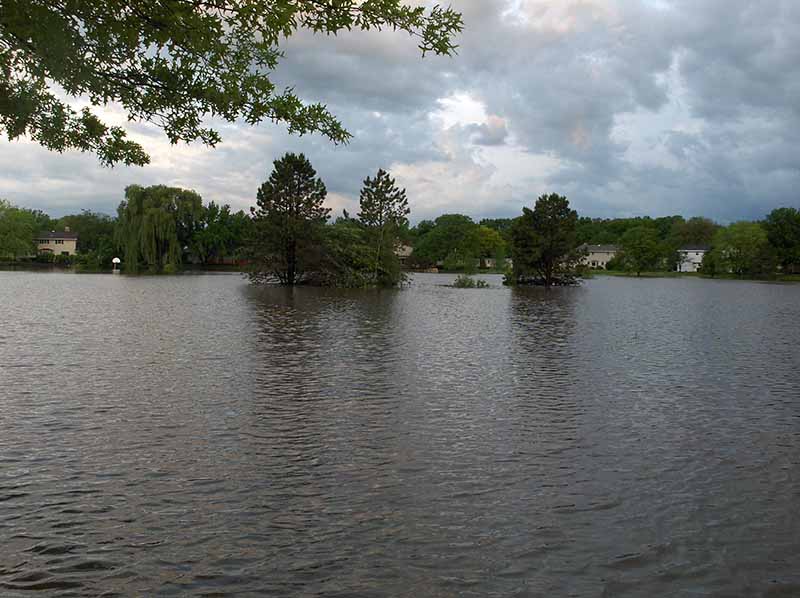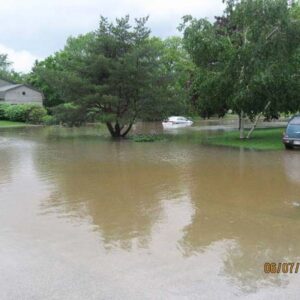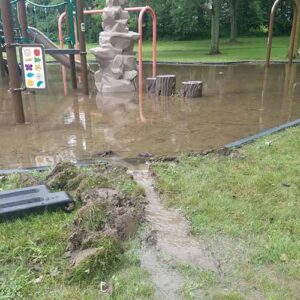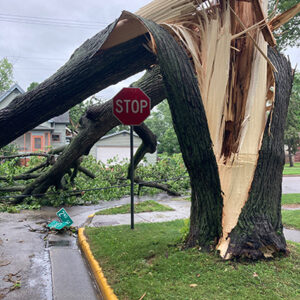Rural roads, highways, airports, ports, dams, and storm-water and wastewater systems — everything that sup-ports our lives and livelihoods — have been designed using rainfall statistics that are out-of-date for current conditions and will become increasingly inaccurate in the future. According to the Wisconsin Initiative on Climate Change Impacts (WICCI), the last two decades have been the warmest on record in Wisconsin, and the past decade has been the wettest.
Current climate conditions in Wisconsin include more frequent and intense precipitation, higher annual precipitation amounts, earlier thawing in the spring and more freeze/thaw cycles, higher water table elevations, extreme variation in lake levels, and more humid heat waves. As the climate continues to warm, each additional degree of warming will intensify these conditions and accelerate wear and tear on infrastructure. New approaches to funding, designing, building, and maintaining infrastructure are needed to make communities more resilient to climate change impacts.

Local governments are essential in affecting climate change response by reducing greenhouse emissions and adapting sustainable practices. With new federal funding directed towards accelerating the pace of climate resilient practice, many locals are starting to examine their vulnerabilities. However, institutional barriers such as current regulations that mandate the use of outdated climate data impede progress.
The infrastructure sector also has a role in decarbonizing our communities. Currently, the process of creating the most common construction materials, like concrete and steel, as well in all phases of an infrastructure project, are substantial sources of greenhouse gas emissions. New materials, manufacturing techniques, and reuse programs can reduce emissions and benefit the regional economy.
The WICCI Infrastructure Working Group is actively working to help local governments with initiatives such as the Wisconsin Rainfall Project that provides updated rainfall statistics to aid in the design of new infrastructure.
This article is part of a series highlighting the contribution from each WICCI Working Group for the 2021 WICCI Assessment Report.
Infrastructure Working Group - Stories
Support WICCI
Gifts to the Wisconsin Initiative on Climate Change Impacts (WICCI) Program Fund provide general, discretionary program support and are used to enhance and expand WICCI’s teaching, research, and public service roles. Gifts are also used to support partnership-building activities, include faculty, staff, and student recruitment, retention, and morale.
The Wisconsin Initiative on Climate Change Impacts (WICCI) is a statewide collaboration of scientists and stakeholders formed as a partnership between UW–Madison’s Nelson Institute for Environmental Studies and the Wisconsin Department of Natural Resources. WICCI’s goals are to evaluate climate change impacts on Wisconsin and foster solutions.




